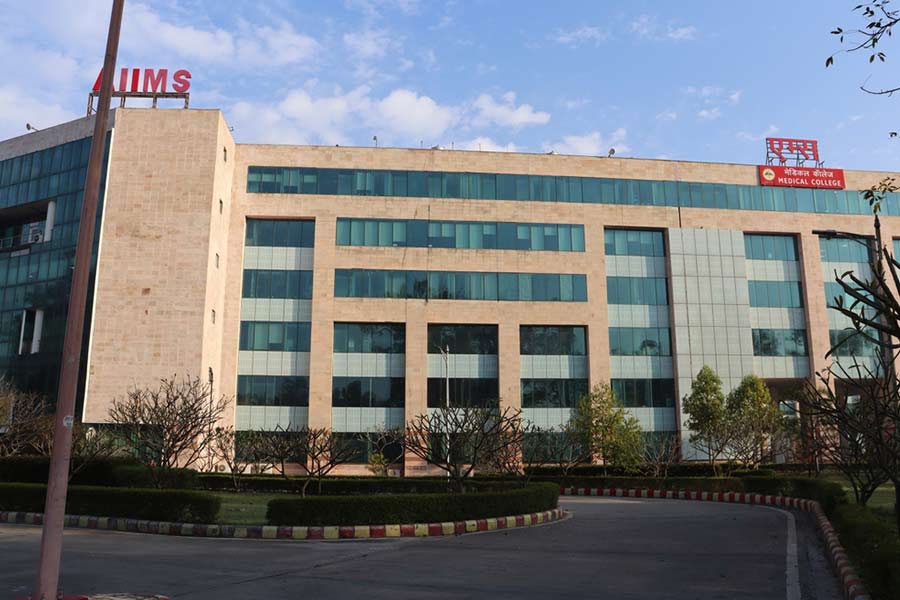Doctors at AIIMS-Delhi have cautioned people against consuming contaminated food and water, the prime cause of Hepatitis A, cases of which have seen a rise in the national capital in the past few weeks.
The hospital is seeing an increase in the number of Hepatitis A cases, with the majority of the patients being children and those in the age group of 18-25, Dr Shalimar, professor at Department of Gastroenterology, AIIMS said at a press conference.
Hepatitis A and E, both of which are mainly transmitted through drinking water contaminated with faecal matter, are self-limiting infections and do not require any specific anti-viral drugs for treatment and are managed symptomatically, said Dr Pramod Garg, head of the Department of Gastroenterology.
"The spread of Hepatitis A and E can be largely prevented by ensuring access to safe and clean drinking water, safe food handling practices and by maintaining good hygiene," he said.
A study conducted by the Department of Gastroenterology, AIIMS has shown that Hepatitis A and E together constitute 30 per cent of the cases of acute liver failure, a condition with a high mortality of over 50 per cent, he said.
Hepatitis B and C cause chronic liver disease and together are the most common cause of liver cirrhosis, liver cancer and viral hepatitis-related deaths, said Dr Deepak Gunjan, additional professor in the department, at the press conference.
Hepatitis B and C infections occur through exposure to infected blood, for example, unscreened blood transfusions, mother-to-child transmission during birth and delivery, unsafe sexual practices and injectable drug use, he said.
"Hepatitis B virus requires long-term treatment. For Hepatitis C virus infection, treatment for three months with antiviral drugs cures more than 95 per cent of the patients. Some patients with liver failure, advanced cirrhosis and cancer of the liver may require liver transplantation," Shalimar said.
Apart from hepatitis viruses, the liver can be damaged by multiple factors, including an unhealthy lifestyle, consumption of alcohol, consumption of drugs and autoimmune diseases.
Excess fat in the liver can result from excessive body weight, diabetes or a sedentary lifestyle, and this, if uncorrected, can also contribute to liver damage in the long term, said Dr Samagra Agarwal, assistant professor in the department.
Adopting a healthy lifestyle which includes avoiding alcohol, a healthy diet, daily exercise and avoiding any potentially liver toxic medicine without a doctor's advice are essential for a healthy liver.
The theme for World Hepatitis Day 2024, which was observed on July 28, is "It's Time for Action". It emphasises the urgent need to reduce new hepatitis infections globally, decrease viral hepatitis-related deaths and achieve the goal of global elimination of viral hepatitis by 2030.
According to the World Health Organisation (WHO), 10 countries, including India comprise nearly 66 per cent of the global burden of viral Hepatitis B and C.
"India is one of the countries with the highest burden of viral hepatitis and accounts for approximately 12 per cent of the world's viral hepatitis cases," Garg said.
"In India alone, estimates suggest that 40 million people are chronically infected with Hepatitis B and 6 to 12 million people are chronically infected with Hepatitis C," he elaborated.
By 2030, the WHO aims to achieve a 90 per cent reduction in new chronic hepatitis infections and a 65 per cent reduction in viral hepatitis-related deaths.
In India, the National Viral Hepatitis Control Program is working towards this goal. Under this programme, all newborns are vaccinated at birth for Hepatitis B and medicines to treat Hepatitis B and C viruses are provided free of cost, Garg said.
Blood tests for the detection of hepatitis virus are available at government healthcare facilities and people with risk factors for hepatitis should get tested, he urged.
"Certain groups are at a high risk of infection including those who have received blood transfusions, healthcare workers, pregnant women, intravenous drug abusers, family members of Hepatitis B virus patients and men who have sexual intercourse with men," said Garg, stressing on the need for screening of pregnant woman.
Except for the headline, this story has not been edited by The Telegraph Online staff and has been published from a syndicated feed.










